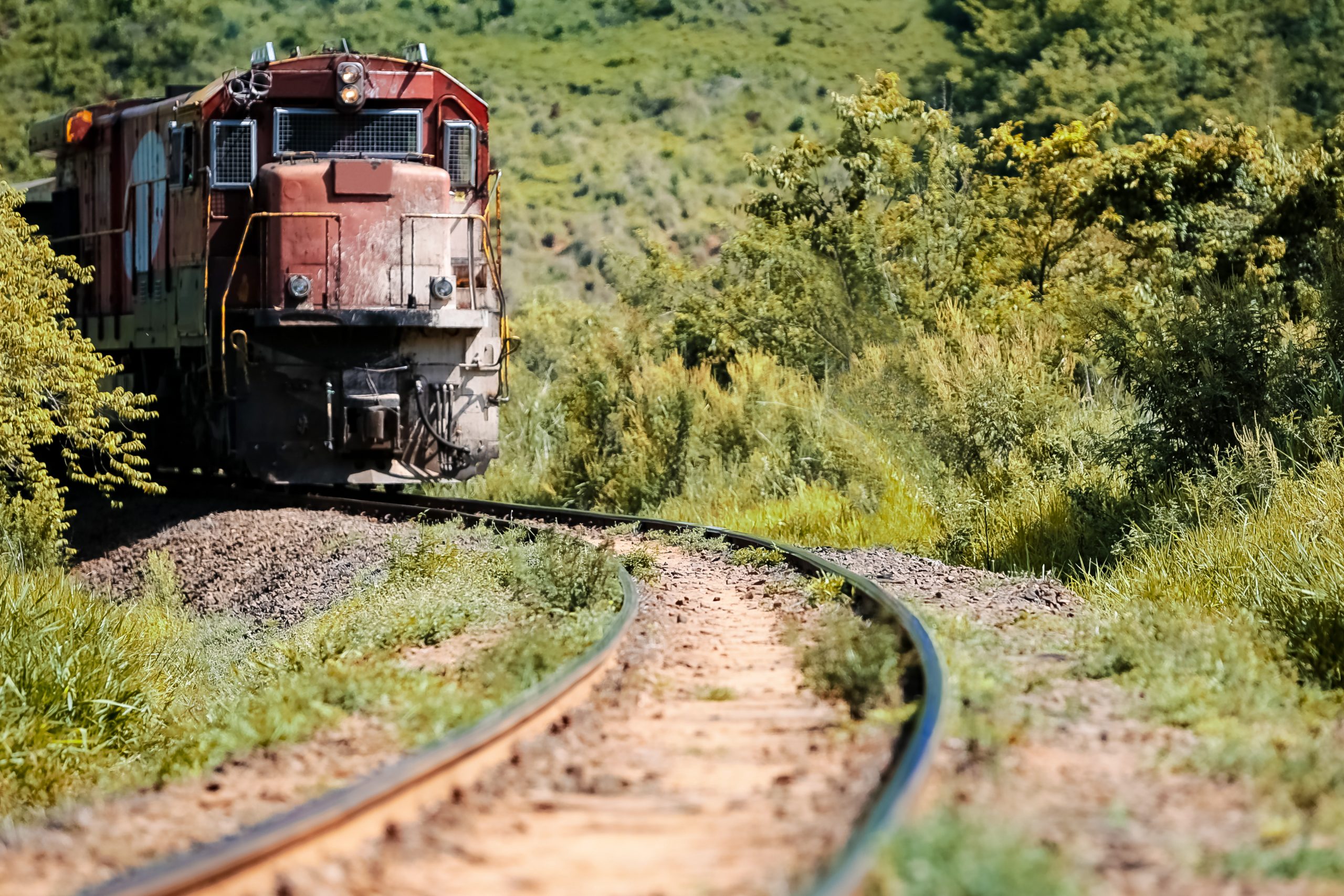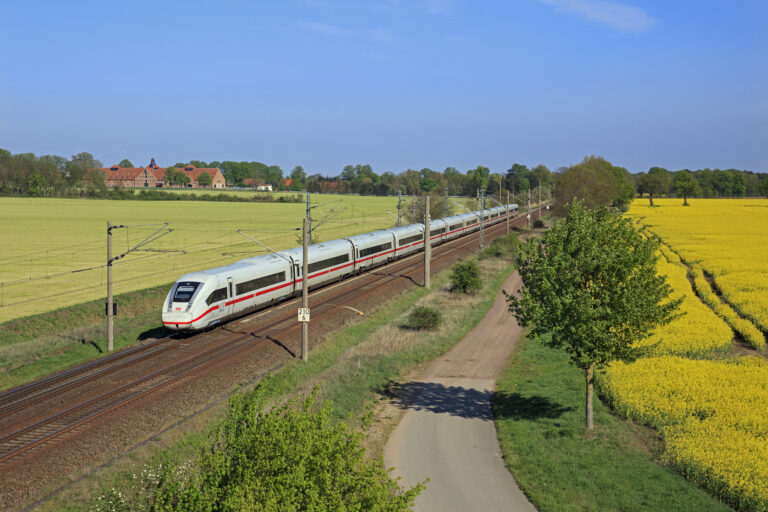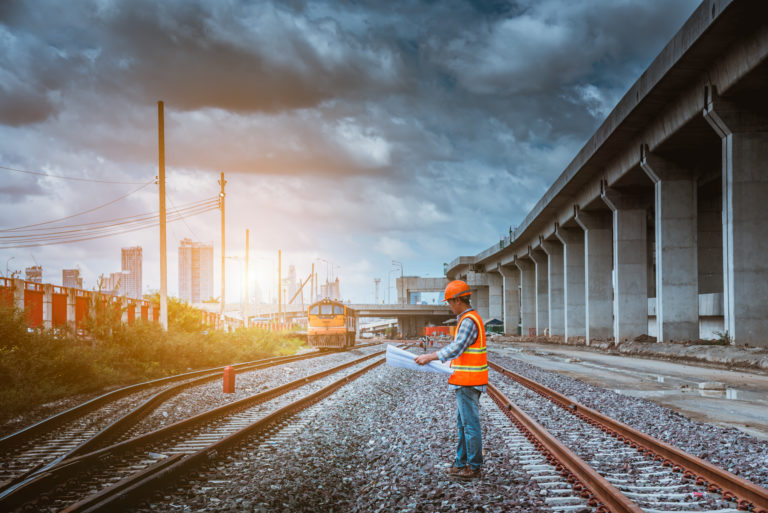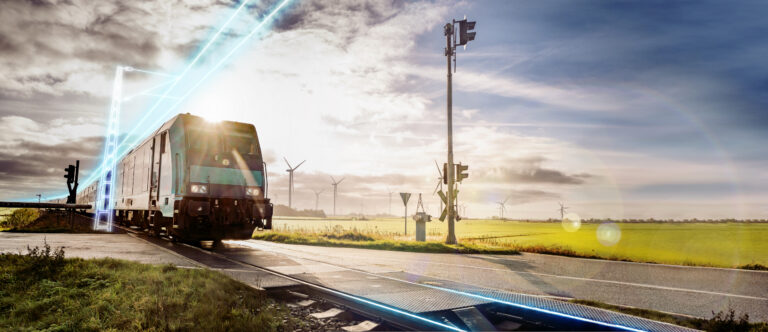Over the past 18 months, DB Engineering & Consulting and Vale S.A., the world’s largest producer of iron ore and nickel and one of Brazil’s largest logistics operators, worked together to identify and investigate pathways for implementing emissions reduction technology in Vale S.A.’s rail operations.

Vale S.A. has set a goal of reducing emissions by 33% by 2030 and becoming net zero by 2050 for all of its operations. DB Engineering & Consulting’s focus was on the two iron ore haulage routes: Estrada de Ferro Carajas (EFC), which has a challenging and mountainous topography, and Estrada de Ferro Vitoria Minas (EFVM), which is predominantly downhill.
The different topographies meant that detailed investigations were required to identify suitable solutions for each route since it wouldn’t be possible to implement a “one size fits all” solution. Different combinations of locomotive technologies and electrification strategies needed to be considered, including diesel-battery hybrid, dual mode, different overhead electrification strategies, and battery solutions.
Translating existing simulation expertise
Approximately 40% of Deutsche Bahn´s rail network is not electrified. Deutsche Bahn developed the DB Eco Rail Simulator to evaluate different zero-emission locomotive technologies for future operation on non-electrified network sections in Germany. The simulator analyzes the energy requirements of existing diesel locomotives operating on these network sections and identifies the performance requirements of replacement zero-emission locomotives.
DB Engineering & Consulting was confident that simulations could help to identify viable technical solutions involving low and zero-emission locomotive configurations that would achieve Vale S.A.’s emissions reduction targets. It knew it could use the simulator to analyze the performance of Vale S.A.’s existing diesel locomotive fleet on each route and then simulate the performance of zero-emission locomotives.
Simulations were performed using models of different zero-emissions locomotive technologies (electric, battery and hybrid configurations) operating with different electrification strategies. This established the locomotive energy performance requirements and characteristics as well as the locations of electrical and recharging infrastructure to achieve the necessary reduction in diesel consumption for the emissions reduction targets.
The simulator models for zero-emissions locomotive technology were based on the latest information available from equipment and system vendors. This information was gathered through a market engagement process, which served multiple purposes:
- Gathering information on the latest equipment performance specifications and commercial costs of zero-emissions technologies
- Informing the market of the potential scale of future demand for zero-emissions technologies
- Providing Vale S.A. with a larger list of vendors able to supply suitable equipment and systems to implement the preferred technical solution
The hope was that this process will also help prevent or minimize supply capacity constraints that could negatively impact pricing.
Determining the must-haves
The simulator identified the minimum performance requirements and technical characteristics of locomotive systems needed in order to achieve the 2030 and 2050 emissions reduction targets. In total, more than five solutions were identified for each route that could achieve the 2030 emission reduction target, and three or more solutions were identified for each route that could achieve net-zero emissions by 2050.
To be considered for implementation, the technical solutions also needed to be financially and logistically feasible. A logistical feasibility assessment used information gathered during the market engagement process and focused on the production and manufacturing rates that would be needed to implement the technical solutions.
For the financial feasibility assessment, DB Engineering & Consulting received input from the Vale S.A. team and developed a financial model to assess the lifetime capital investment and operational costs of each solution. The solutions that met the initial financial criteria were investigated further to identify which combinations would best achieve the 2030 and/or 2050 targets. The best combinations of technical solutions with the most favorable financial pathway to implementation were chosen as the preferred options for achieving both the short and long-term objectives.
Choosing the pathway to sustainable rail operations
Given the timeframes available, the size of Vale S.A.’s fleet to be transitioned and the desire to maximize the service life of existing assets, the partners determined that emissions could be reduced by 33% with a dual-mode diesel locomotive solution (diesel locomotive with a connection to overhead catenary sections) on the EFC route. A hybrid diesel locomotive solution (diesel locomotive with battery tender and recharging facilities located at the port) was identified as the best option for the EFVM route, as the journey from the mine to the port is largely downhill.
The investigation determined that battery-electric locomotives plus additional battery tenders, with overhead catenary sections for recharging the battery locomotives and battery tenders, were the best solution for both the EFC and EFVM routes to achieve net-zero emissions by 2050.
The longer timeframe for achieving the net-zero emissions target provides an opportunity to refine the proposed solutions and allows other technology solutions to be considered.
In the end, the partners identified a pathway to emission-reduction targets that is both technically and financially feasible, and challenged conventional thinking around the application of zero-emission technologies in rail systems. Moreover, it was a rewarding experience for the partners since their work will help improve sustainability in rail operations.
Contact
DB Engineering & Consulting
EUREF-Campus 14
10829 Berlin
Germany





